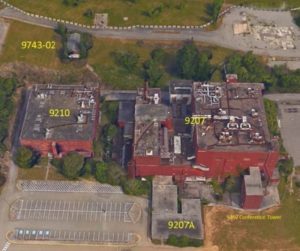Vanderbilt will continue its leading role in a multi-university consortium of engineers and scientists that advises the U.S. Department of Energy on the best ways to clean up nuclear production sites and safest methods for nuclear waste disposal.
DOE recently renewed its cooperative agreement with the university to manage CRESP – The Consortium for Risk Evaluation with Stakeholder Participation – under the leadership of Cornelius Vanderbilt Professor of Civil and Environmental Engineering David S. Kosson.
The $15 million, five-year agreement extends Vanderbilt’s key role in supporting DOE Environmental Management program areas, including regulatory affairs, subsurface remediation and tank closure, waste disposal, strategic planning, technology development, engineering, safety, operations, and stakeholder interactions. Vanderbilt has been the lead organization in the effort since 2006.
The renewal comes at a pivotal time for DOE and communities with sites still in need of remediation. A legacy that dates to the Manhattan Project left 107 U.S. sites where energy research and weapons production created conditions that require specialized cleanup. Most of the sites are done, and only 16 sites in 11 states, including Tennessee, remain. But the remaining sites are the most complex and costly to tackle.

CRESP performs strategic assessments, conducts applied research, reviews mitigation and cleanup plans, and provides education and training. The consortium also is benefitting from having Sue Cange (BE ’82, MS ’83) on campus as a visiting scholar for two years in the Department of Civil and Environmental Engineering.
She has three decades of experience in federal leadership positions and helped develop the EPA policies that govern cleanup of contaminated Superfund sites, is at the School of Engineering to develop training for the generation that will continue the mission.
Cange, who most recently was Principal Deputy Assistant Secretary and Acting Assistant Secretary for DOE’s Office of Environmental Management, is working on a number of initiatives focused on workforce development, including establishing a new nuclear environmental engineering curriculum and an internship program that will place students with the DOE.
Education and providing a foundation for the next generation of nuclear waste management professionals is part of its CRESP’s mission. The consortium advances cost-effective, risk-based cleanup and management of U.S. nuclear weapons production sites.
As CRESP director, Kosson is the principal investigator under the cooperative agreement. The CRESP management board is comprised of technical, engineering, scientific and policy experts from ten university consortium member institutions: Vanderbilt University, Howard University, New York University School of Law, Oregon State University, Rutgers – The State University of New Jersey, University of Virginia, and Georgia Institute of Technology.